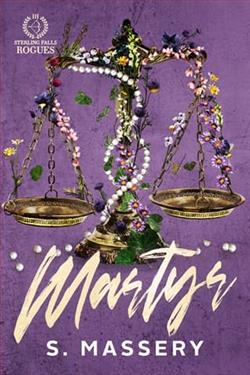Page 113 of Happiness for Beginners
“I don’t think of myself as a caregiver,” I said.
“You were for Duncan,” she said. “Your mom was struggling so hard back then. Duncan was in so many ways like a motherless child. But you stepped in. You changed his diapers. You put him to bed. You rocked him.”
“I don’t remember any of that. I only remember resenting him.”
“I’m sure you did resent him! You never asked for that responsibility! But you tried your best, anyway. You knew too much was missing, and you gave everything you could.”
“What was she thinking, having another baby?”
“I have asked myself that a thousand times. Your father was already halfway out the door before Duncan even arrived.”
GiGi was still painting. She still had that expression she always wore when she worked—like she was half in the world, and half in the painting—but now we’d come to the precipice. GiGi took a good look at what she’d painted so far, and then she dropped her brush in a jar of water. She took off her smock, came to sit beside me on the green sofa, and took my hand.
“This must be important,” I said, “if you’re putting your brush down.”
“That night,” she went on, “your brother had frazzled my nerves with all the crying. When you told me to go home and get Softie, I was glad for the break. I drove over to get it and let myself in. That’s when I found your mom.”
“What do you mean, ‘found’ her?”
GiGi squeezed my hands a little tighter. “She had taken a bottle of painkillers and crawled into bed with Nathan’s teddy bear.”
I pressed my free hand to my mouth.
“I found her in time, and that’s all you need to know about that. When I got home from the hospital at four in the morning, you were asleep on the sofa in your clothes, and your brother was tucked in his bed like an angel. I don’t know how you managed without Softie, but you did.”
I had to say the words out loud. “She tried to kill herself.”
GiGi nodded, but barely. “After that, I found a place for her where she could try to get better. But ‘better’ is a tricky term. She stayed six months. But even after she came home, she was too fragile to take you back. I convinced her to sell the house and start a new life as best she could. She found a nice little apartment, but a one-bedroom was all she could afford. She talked endlessly about getting you two back, and I played along, but the truth is, you were better off here. And she was better off there.”
I realized I was shaking. “You never told us.”
“It wasn’t my story to tell.”
“It was! It was our story. Our whole family.”
“Would you really want me to have come straight home and told you? You, with the world on your shoulders? You, with your father gone, still grieving Nathan so badly? Imagine that little girl asleep on the sofa in her sneakers. Would you want me to walk into that living room, wake her up, and tell her what really happened?”
I shook my head.
“I would never have put that on you.”
“But later?” I asked then. “When we were older?”
She shook her head. “She asked me not to.”
It seemed incomprehensible to me. So much would have been different if she’d told us the truth. “Why?” I whispered.
“She was ashamed, I think.”
“I thought she didn’t want us.”
GiGi pulled me in and put her arms around me. “Better that than the truth.”
But I wasn’t sure it was better.
She held me for a long time before she added, “I always felt like the two of you sensed something was wrong that night. Maybe it was only coincidence. But the truth is, the two of you made sure I went back over there. I can’t see it any other way. You saved her.”
***















